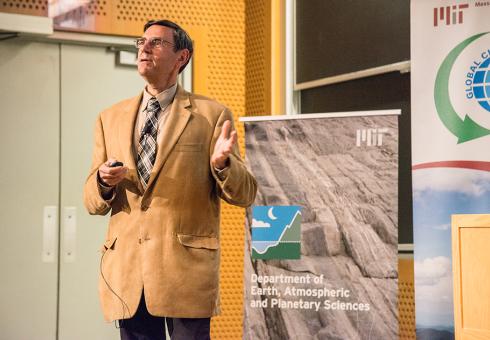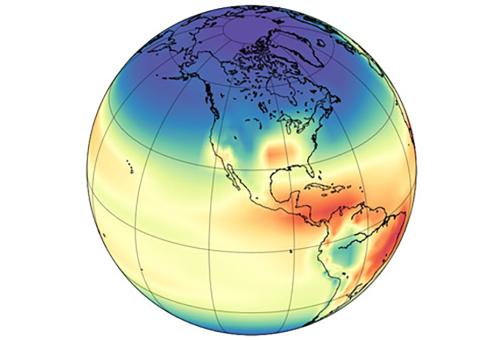News Releases
Study highlights need to improve modeling of carbon-rich Northern Eurasia
By 2050, the Southwest will produce significantly less cotton and forage, researchers report
Sarah Fletcher receives new graduate fellowship and “Best Presentation” award
Chaire Economie du Climat: Jonathan B. Wiener, J.D., author of a new essay on the current status and possible future of U.S. climate policies, spoke on this topic at the XL (40th) MIT Global Change Forum in March.
A professor of law and environmental and public policy at Duke University, Jonathan B. Wiener has written widely on U.S., European and international environmental law and risk regulation.
IN THIS ISSUE: Future of forests under climate change / More extreme storms ahead for California / Charting a better future for Africa / Monitoring mercury
Award-winning paper by Arun Singh shows how one of the world’s fastest-growing economies can expand its energy consumption while limiting emissions
A message to the MIT community from MIT President L. Rafael Reif
Correcting the record on the US President's reference to MIT research
How the price of crude may shape the future of a low-carbon alternative
How combining climate policy and vehicle emissions standards could pack a one-two punch
Climate data analyst Thomas Karl describes global temperature and precipitation measurement and interpretation in the 16th Henry W. Kendall Memorial Lecture
New study in PNAS co-authored by MIT Joint Program Co-Director Ronald Prinn pinpoints possible cause of a sudden, unexpected global rise in atmospheric methane in 2007












